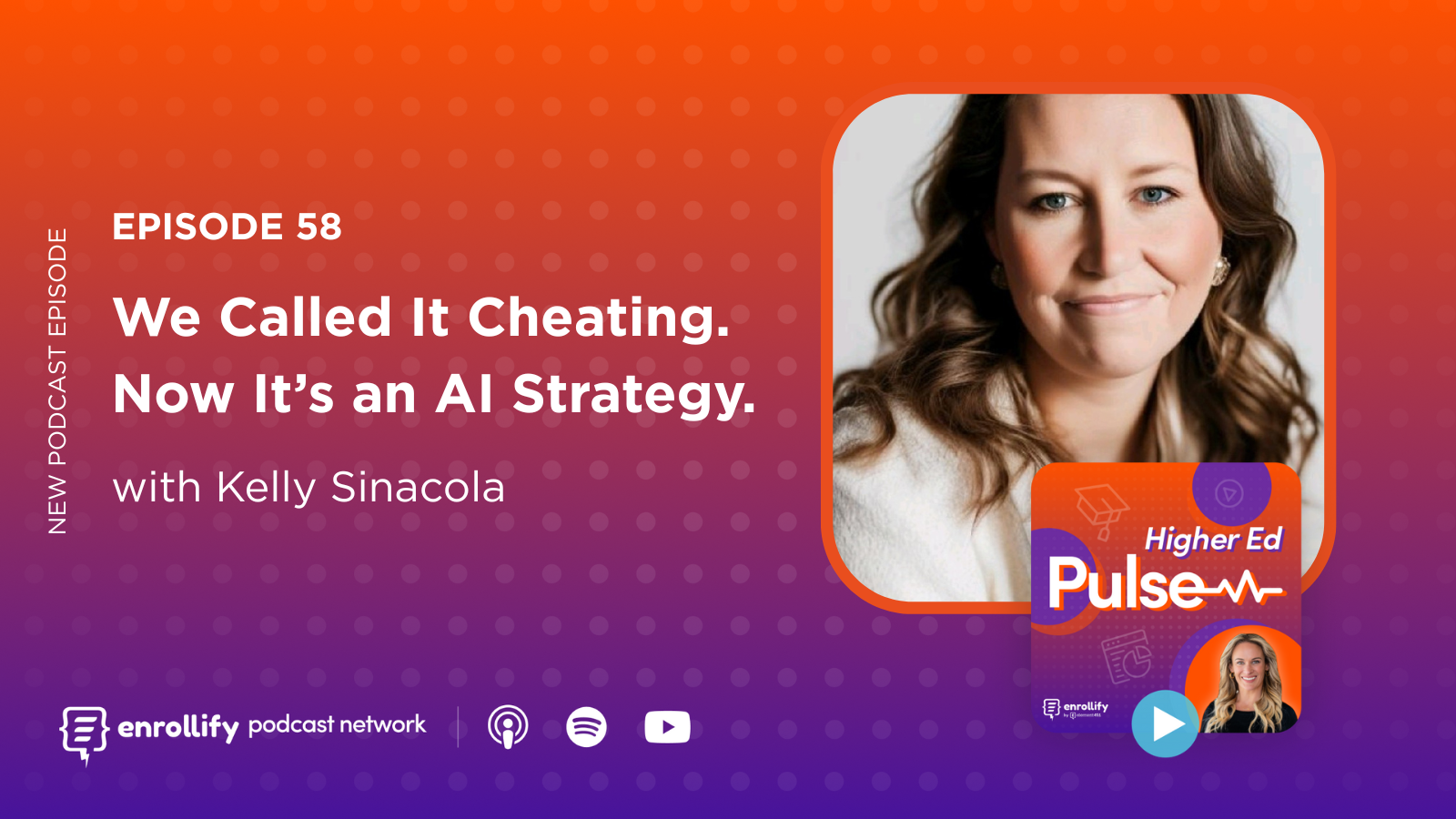About the Episode
About the Episode:
This week, we’re featuring a conversation with Sara Leoni, CEO of Ziplines Education, about how her company partners with universities to offer industry-aligned certificate programs designed to upskill adult learners into tech-adjacent careers. Sara shares insights on the evolving workforce, the need for flexible, accessible education, and the importance of addressing regional disparities in education and employment opportunities. They also discuss the significance of building community through learning and the role of universities in providing career pathways for mainstream America.
Key Takeaways
- Supporting Tech-Adjacent Careers: Zipline Education partners with universities to provide industry-aligned certificates, helping adult learners upskill or reskill into tech-adjacent roles.
- Focus on Middle America: Zipline aims to bridge the tech skills gap in regions outside major tech hubs, emphasizing accessibility and relevant skills for underserved communities.
- Flexible, Cohort-Based Learning Model: Zipline offers a blended approach with asynchronous learning complemented by live, community-oriented sessions to enhance networking and engagement.
- Outcome-Driven Data Collection: By consistently gathering data from learners, Zipline ensures its programs align with learner and industry needs, tracking completion rates, satisfaction, and skill application.
- Goals for Growth and Expansion: Zipline continues to innovate by designing modular career pathways and enhancing connections between employers and learners to meet regional workforce demands.
Episode Summary
What is Zipline Education's mission in workforce development?
Zipline Education was founded to create career acceleration programs that bridge the gap between traditional education and tech-adjacent careers. By partnering with universities, Zipline offers adult learners accessible, flexible programs that equip them with the skills needed to stay competitive in rapidly evolving tech fields. Sara Leoni emphasizes that the company’s mission includes focusing on adult learners who may be overlooked by the traditional education system and who seek affordable, relevant options to advance in their careers.
Why focus on “middle America” for tech skills development?
Sara shares Zipline’s focus on regions outside of major tech hubs, which often lack the same educational resources and networking opportunities. By working with universities in these areas, Zipline addresses the growing need for tech-literate professionals in cities like Tulsa or smaller towns in Texas, where tech skills are essential yet not always easily accessible. Sara highlights how Zipline is empowering communities to stay competitive in the modern workforce, regardless of geographic location.
How does Zipline create effective learning experiences for adult learners?
Zipline’s approach to learning is intentionally designed to meet the needs of adult learners balancing education with careers and families. With a hybrid model of 80% asynchronous and 20% synchronous learning, Zipline provides flexibility alongside vital community engagement through cohort-based programs. Sara explains that building networking and soft skills is crucial for career growth, and synchronous interactions allow learners to gain the confidence to articulate ideas, work collaboratively, and expand their professional network.
How does Zipline track success and ensure program relevance?
From day one, Zipline integrates data collection to refine its curriculum and outcomes continually. Tracking metrics like Net Promoter Scores, completion rates, and practical skill application allows Zipline to assess and enhance the learning experience effectively. Sara stresses that these metrics reveal learner satisfaction and preparedness, both of which are vital to serving the needs of the institutions and employers who partner with Zipline. This feedback loop allows Zipline to fine-tune its programs, ensuring they remain aligned with industry demands and learner goals.
What are the next steps for Zipline in the evolving workforce development landscape?
As Zipline continues to expand, Sara discusses plans to provide more tailored career pathways that consider regional demands and specific skills needed across different industries. Leveraging a modular approach to curriculum design, Zipline aims to enhance career mapping and improve connectivity between learners and employers. These future plans, Sara explains, will support more granular, impactful career transitions and ensure Zipline’s programs remain flexible to meet the ever-changing needs of the workforce.
Sara Leoni’s conversation with Dustin is a deep dive into the changing landscape of tech education for adult learners, and her insights reveal the power of targeted, flexible educational models that make workforce development more accessible and impactful.
About the Show: The Higher Ed Geek Podcast explores the impact of edtech on the student experience by speaking with diverse leaders from institutions, companies, and nonprofit organizations. Each week we aim to provide an engaging, fun, and relevant dose of professional development that honors the wide range of work happening all across the higher ed ecosystem. Come geek out with us! The Higher Ed Geek Podcast is hosted by Dustin Ramsdell and is a proud member of the Enrollify Podcast Network.
Connect With Our Host:
Dustin Ramsdell
https://twitter.com/HigherEd_Geek
About The Enrollify Podcast Network:
The Higher Ed Geek is a part of the Enrollify Podcast Network. If you like this podcast, chances are you’ll like other Enrollify shows too!
Some of our favorites include Generation AI and I Wanna Work There.
Enrollify is produced by Element451 — the next-generation AI student engagement platform helping institutions create meaningful and personalized interactions with students. Learn more at element451.com.
Attend the 2025 Engage Summit!
The Engage Summit is the premier conference for forward-thinking leaders and practitioners dedicated to exploring the transformative power of AI in education.
Explore the strategies and tools to step into the next generation of student engagement, supercharged by AI. You'll leave ready to deliver the most personalized digital engagement experience every step of the way.
👉🏻 Register now to secure your spot in Charlotte, NC, on June 24-25, 2025! Early bird registration ends February 1st.







.png)







